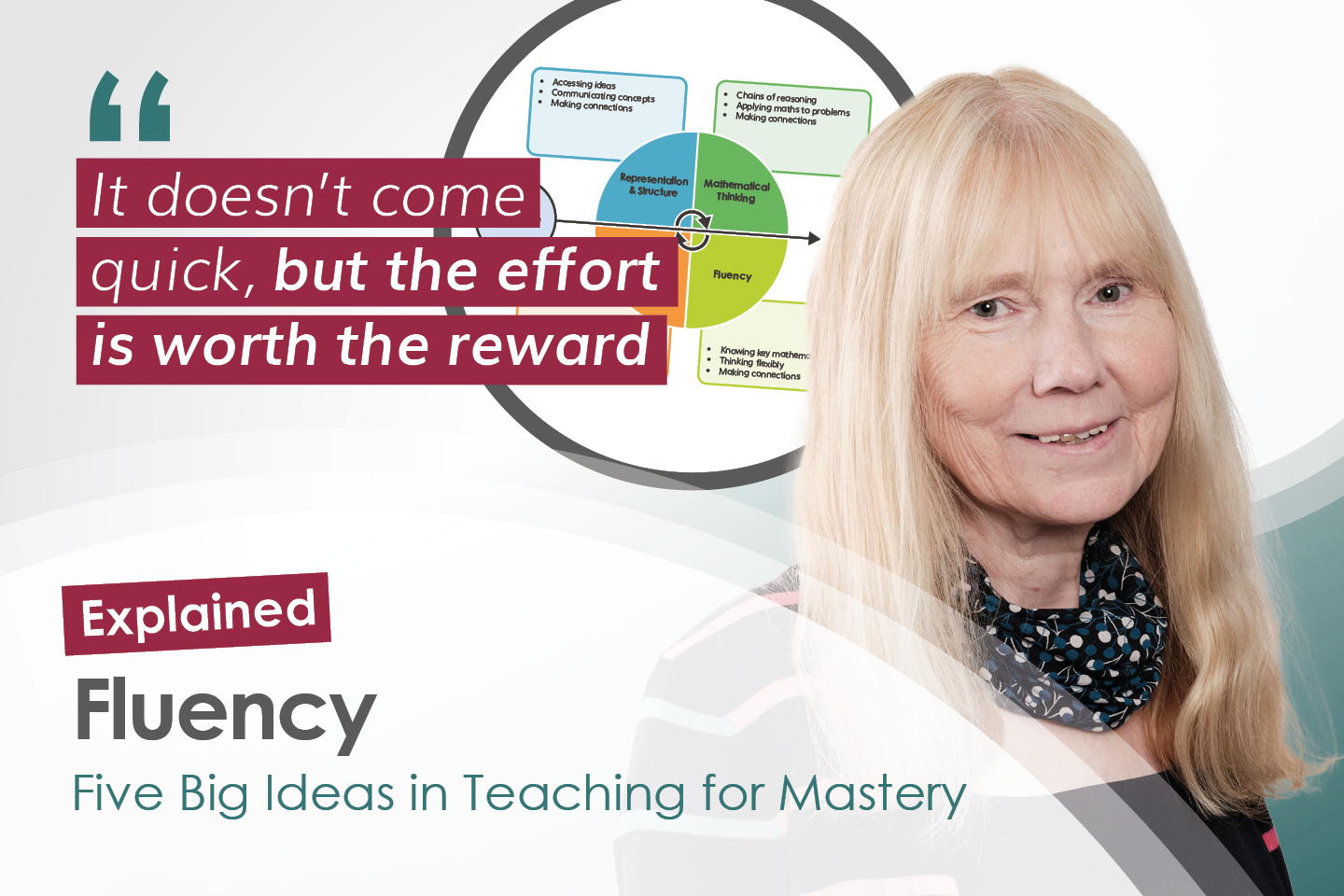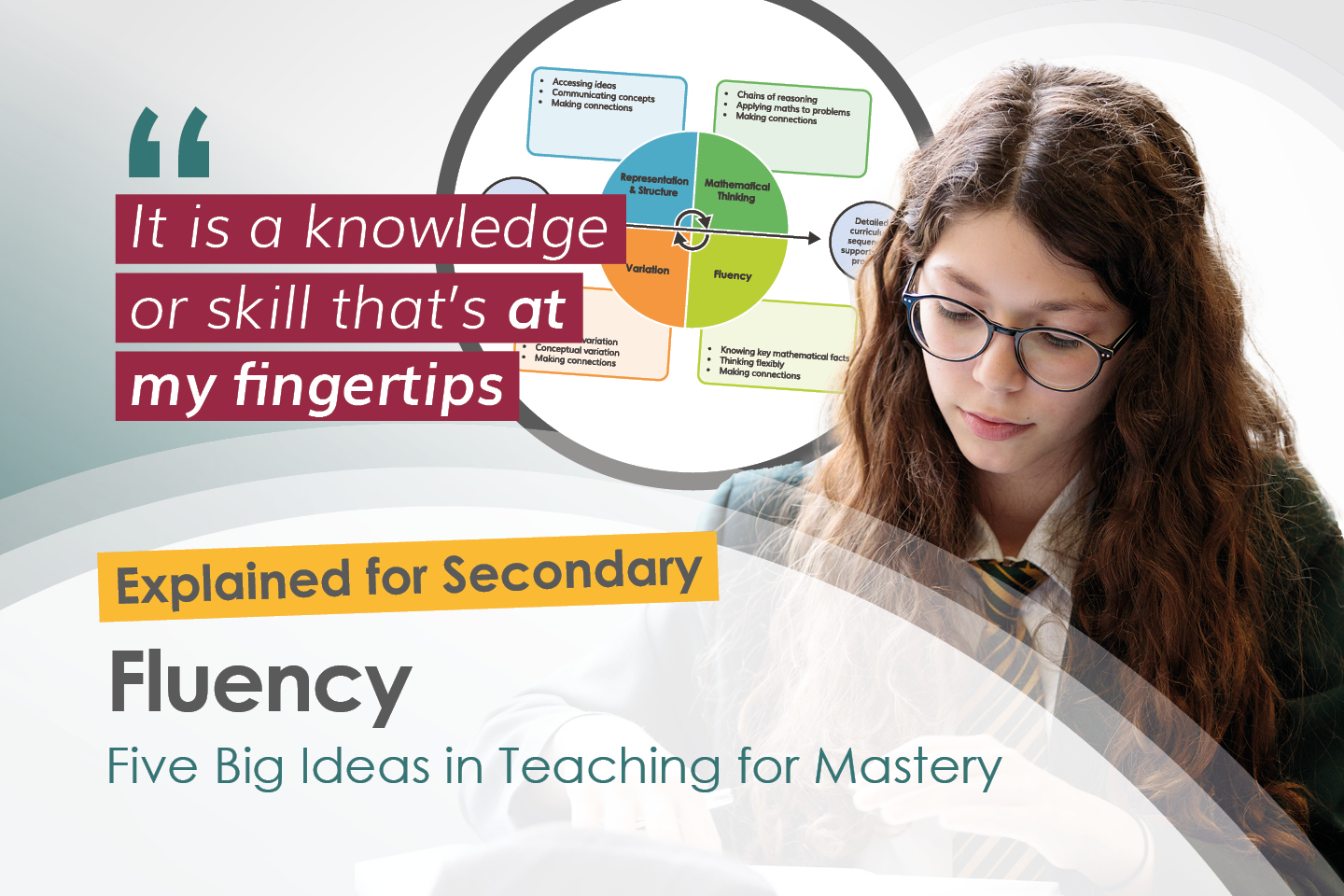Five essential reads: our top three most popular features of 2024/25 (and two you might have missed!)
From fluency and Ofsted to mathematical talk and non-specialist support, we share some popular features from the past year we think you’ll enjoy
17/07/2025

Ask any teacher what they value most in an education feature and they might say something that deepens understanding, supports better teaching or links directly to their classroom practice. These five features did just that. The first three were the most read on the NCETM website this year, while the final two deserve a closer look if they passed under your radar.
Your top three features
1. The Five Big Ideas at Primary: Fluency
Part of our hugely popular Five Big Ideas in Teaching for Mastery series, in this feature, Dr Debbie Morgan explores what fluency really means in a primary classroom. She explains that fluency is not about speed but about confidence, efficiency, accuracy and flexibility. Debbie unpacks each element, with practical examples and direct links to the classroom.
This feature also contains a short, animated video, featuring Debbie herself, making it great bite-sized CPD for any teacher of primary maths and a useful resource for staff meetings or training sessions.
2. How to put the Ofsted maths report into practice
Our series of mini-guides unpicking the 2023 Ofsted subject report has proved incredibly popular with teachers and school leaders. In the series we identify some of the report’s key insights and offer practical advice to put Ofsted’s recommendations into practice, for teachers at all phases, from Early Years to post-16. The series covers fluency at Reception and KS1, oracy, developing a coherent curriculum and more.
Keep an eye out for the final instalment coming soon, which explores deepening mathematical understanding at all phases.
3. Four ways to create better mathematical talk in your classroom
Originally published in 2022, this article remained one of the most-read pieces in 2024/25. Its lasting popularity reflects the continued importance of mathematical talk (oracy) in the classroom.
The feature offers four simple, research-informed strategies that help pupils talk about maths with clarity and purpose. From using sentence stems to framing questions that prompt reasoning, it provides practical techniques that can be used across key stages. Many teachers have returned to it as a helpful prompt for planning, coaching and departmental CPD.
Two features you might have missed
1. The Five Big Ideas at Secondary: Fluency
The Five Big Ideas in Teaching for Mastery are pedagogical approaches underpinning all Maths Hubs professional development. In our series for secondary teachers, we highlight that fluency at secondary is just as important as at primary, particularly in KS3 where pupils are laying foundations for KS4 and beyond. In this feature, Assistant Director for Secondary, Helen Granger, explores what fluency looks like for older students and how it supports reasoning and problem-solving.
With practical advice which draws on the work of the hugely popular Work Group, Developing Fluency with Multiplicative Reasoning at KS3, this feature is a great starting place for secondary teachers looking to support their youngest students to develop the foundations they need to excel at GCSE and beyond. All our Five Big Ideas features are accompanied by short videos, which are ideal for department meetings or CPD.
2. CPD for non-specialists that strengthens maths departments
Many secondary schools will have non-specialists teaching maths in September. Planning ahead to support them is vital, both for student outcomes and teacher confidence.
In this feature Paul Rowlandson, the NCETM’s Assistant Director for School and Professional Development, explains how the Specialist Knowledge for Teaching Mathematics (SKTM) Secondary Non-specialists Programme equips non-specialists with the deep understanding and pedagogical approaches they need to teach maths well.
He also shares what participants can expect and the benefits to a department when all teachers feel confident, supported and connected to a shared pedagogical approach.
Looking ahead
These five features highlight many of our readers’ priorities in maths education this year: fluency, oracy and talk, curriculum thinking and the importance of professional development for all teachers. Whether you are reading them for the first time or coming back for a refresher, each one is packed with useful advice and designed to support both individual teachers and schools.
If you enjoyed these features, make sure you’re signed up to receive our newsletter for more case studies, features, podcasts, blog posts, pedagogical guides and maths news updates. In the meantime, we wish you all a restful and restorative summer break and we’ll see you in September!
Don’t miss the latest maths news, deep dives, features, podcasts and more
Sign up to our newsletter
Connect



